
Ingredient
Maize oil, edible
Golden Elixir: Unveiling the Secrets of Maize Oil
Maize oil is a pale yellow, clear oil extracted from the germ of maize kernels. It has a neutral taste and a light texture, making it suitable for various cooking methods. With its high smoke point, it can withstand high temperatures without breaking down or producing harmful compounds. Its appearance is characterized by its golden hue and fluid consistency.
Origins and history
Maize, or corn, is believed to have originated in Mesoamerica thousands of years ago. It played a significant role in the diet and culture of indigenous civilizations such as the Mayans and Aztecs. The extraction of maize oil dates back to ancient times, where it was used for cooking, medicinal purposes, and even as a cosmetic ingredient.
Nutritional information
Maize oil is a good source of vitamin E, an antioxidant that helps protect cells from damage. It is also low in saturated fat and cholesterol, making it a heart-healthy choice. One tablespoon of maize oil contains approximately 120 calories.
Allergens
Maize oil is generally considered safe for individuals with common food allergies, as it is free from common allergens such as gluten, dairy, and nuts. However, individuals with a specific allergy to corn should avoid consuming maize oil.
How to select
When selecting maize oil, opt for brands that use non-GMO corn and employ cold-pressing or expeller-pressing methods for extraction. Look for oils that are labeled as "pure" or "100% corn oil" to ensure you are getting a high-quality product.
Storage recommendations
To maintain the freshness and quality of maize oil, store it in a cool, dark place away from direct sunlight. Ensure the bottle is tightly sealed to prevent oxidation. It is recommended to use the oil within six months of opening.
How to produce
Maize oil production requires specialized equipment and processes, making it more suitable for commercial production rather than amateur home production.
Preparation tips
Maize oil is a versatile ingredient that can be used for sautéing, frying, baking, and even salad dressings. Its high smoke point makes it ideal for deep-frying and stir-frying. When using maize oil, it is important to heat it gradually to avoid smoking or burning. Additionally, combine maize oil with other flavorful oils or ingredients to enhance its taste in dressings or marinades.
Culinary uses
Maize oil is commonly used for frying, as it can withstand high temperatures without breaking down. It is also used in baking to add moisture and tenderness to cakes and bread. Additionally, maize oil can be used as a base for salad dressings or as a substitute for other neutral-tasting oils in various recipes.
Availability
Maize oil is widely available in grocery stores and supermarkets worldwide. It is commonly cultivated in countries such as the United States, Brazil, Argentina, and China.
More ingredients from this category » Browse all

Peanut oil, edible
Liquid Gold: Unveiling the Versatility of Peanut Oil

Safflower seed oil, edible
The Golden Elixir: Unveiling the Secrets of Safflower Seed Oil
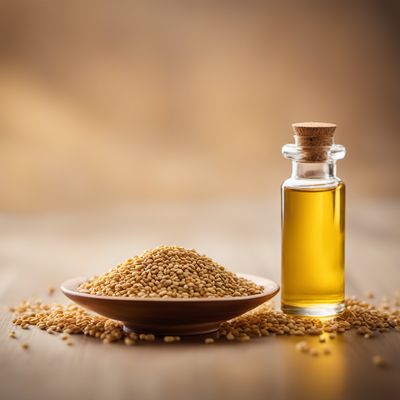
Sesame seed oil, edible
The Golden Elixir: Edible Sesame Seed Oil

Pumpkin seed oil
Liquid Gold: Unveiling the Richness of Pumpkin Seed Oil
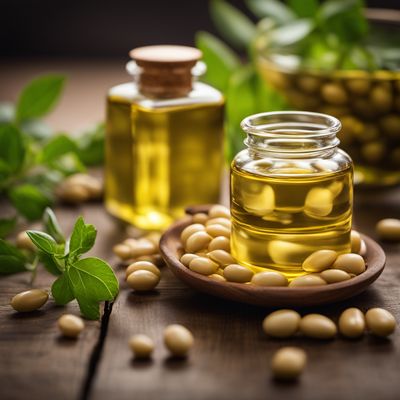
Soya bean oil, refined
The Versatile Oil: Refined Soya Bean Oil

Cotton seed oil, edible
The Versatile Cotton Seed Oil

Rape seed oil, edible
The Golden Elixir: Edible Rapeseed Oil
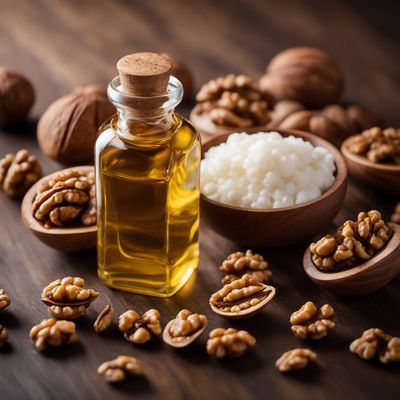
Walnut oil
Liquid Gold: Unveiling the Richness of Walnut Oil
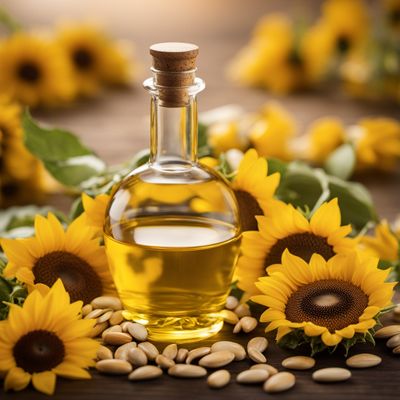
Sunflower seed oil, edible
Golden Elixir from the Sun

Hemp seed oil
Nature's Elixir

Almond oil
Liquid Gold
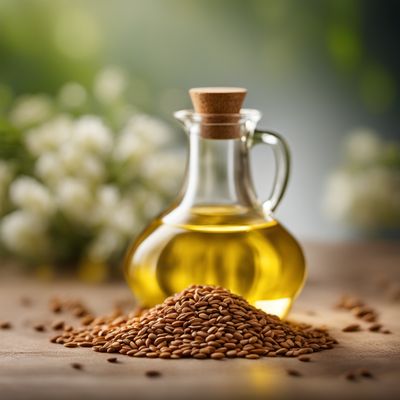
Linseed oil
The Golden Elixir: Linseed Oil